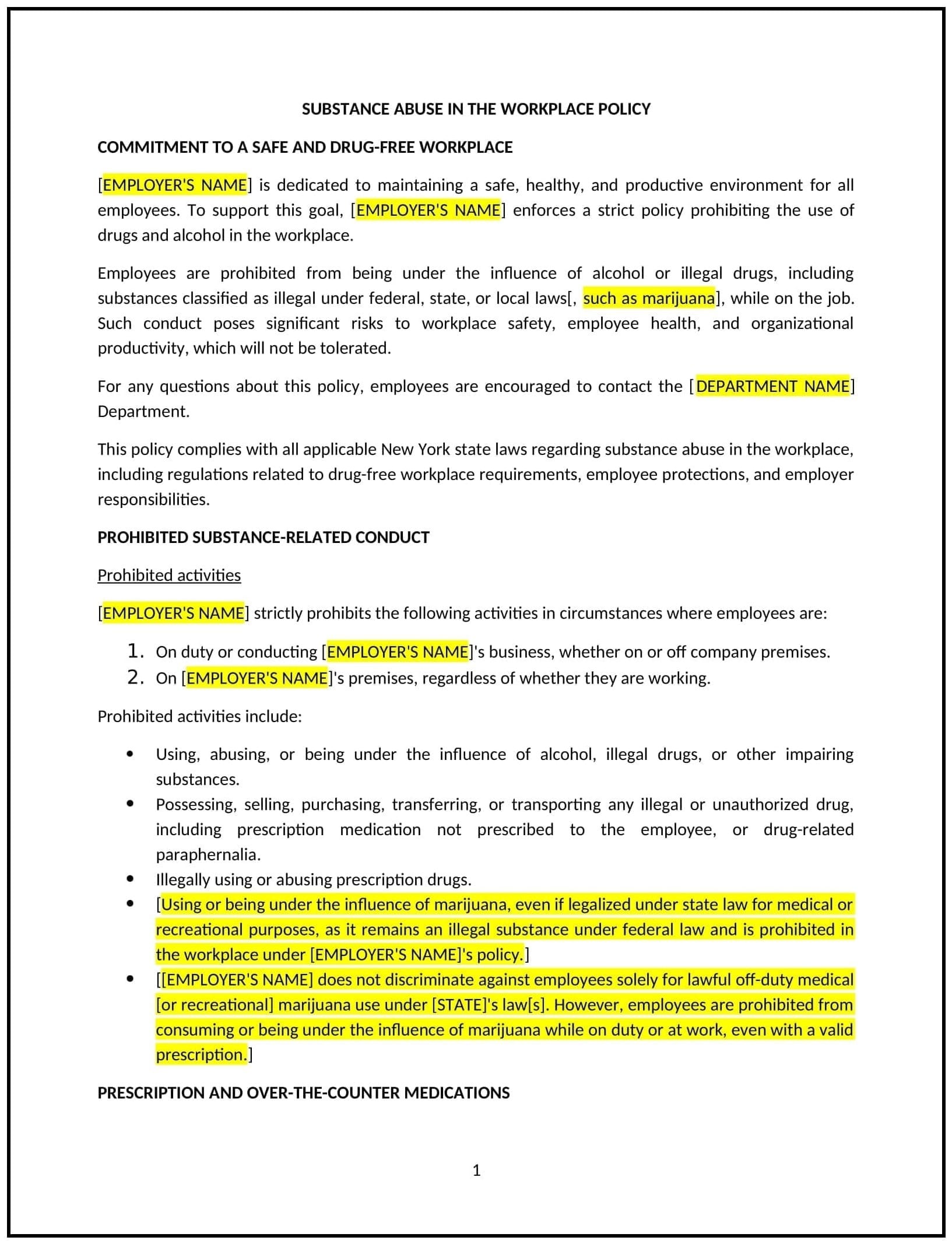Substance abuse in the workplace policy (New York): Free template
Got contracts to review? While you're here for policies, let Cobrief make contract review effortless—start your free review now.

Customize this template for free
Substance abuse in the workplace policy (New York)
This substance abuse in the workplace policy is designed to help New York businesses establish clear guidelines regarding the use of drugs and alcohol in the workplace. Whether businesses are addressing employee substance abuse, implementing drug-free workplace practices, or ensuring compliance with state and federal regulations, this template provides a structured approach to promoting a safe, productive, and healthy work environment.
By adopting this template, businesses can reduce risks associated with substance abuse, improve workplace safety, and support employees in maintaining healthy lifestyles.
How to use this substance abuse in the workplace policy (New York)
- Define substance abuse: Clearly specify what constitutes substance abuse, including the use, possession, or distribution of illegal drugs and alcohol while on company premises or during work hours.
- Outline prohibited behaviors: Detail behaviors that are prohibited under the policy, such as being under the influence of drugs or alcohol while working, using substances during breaks, or reporting to work impaired.
- Establish testing protocols: Include guidelines for substance abuse testing, such as pre-employment drug tests, random testing, or testing after accidents or incidents.
- Provide support options: Offer resources for employees seeking help with substance abuse issues, such as employee assistance programs (EAPs), counseling, or rehabilitation programs.
- Set disciplinary actions: Define the consequences of violating the substance abuse policy, ranging from warnings to termination, depending on the severity of the offense.
Benefits of using this substance abuse in the workplace policy (New York)
This policy offers several benefits for New York businesses:
- Improves workplace safety: Clear guidelines help reduce workplace accidents and injuries caused by impaired employees, promoting a safer environment for all workers.
- Increases productivity: Addressing substance abuse helps prevent distractions, absenteeism, and decreased performance, ensuring that employees remain focused and engaged.
- Protects company reputation: A strong stance on substance abuse demonstrates the company’s commitment to maintaining a professional and responsible work environment.
- Reduces legal risks: By implementing substance abuse testing and adhering to state and federal regulations, businesses minimize the risk of legal liabilities related to workplace substance abuse.
- Supports employee well-being: Offering resources and support for employees dealing with substance abuse issues promotes a healthier workforce and can lead to improved morale and retention.
Tips for using this substance abuse in the workplace policy (New York)
- Communicate clearly: Ensure all employees are aware of the policy and understand the behaviors that are prohibited, as well as the consequences for violations.
- Provide education: Offer training or workshops on substance abuse awareness, including the impact of substance abuse on workplace safety and productivity.
- Offer support: Make resources such as EAPs or counseling services readily available to employees who may be struggling with substance abuse.
- Monitor compliance: Regularly review the policy and conduct random or periodic testing to ensure compliance and detect potential issues early.
- Review regularly: Update the policy as necessary to reflect changes in state laws, federal regulations, or company practices.